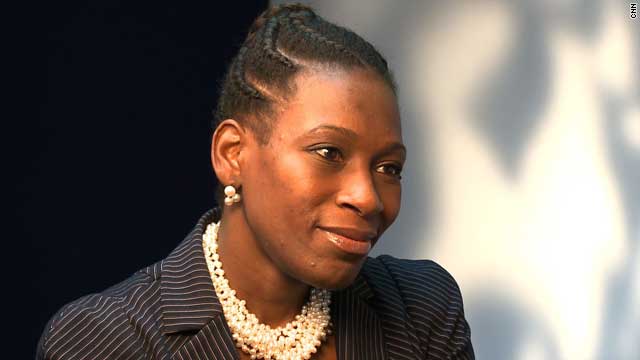Ngozi Edozien: 'Investing in Africa is not for the faint-hearted'

- Ngozi Edozien is head of West Africa for private equity investor Actis
- "Briefcase investing" is not suitable for Africa, according to Edozien
- "I'm not one of these people who believes that you can't do business cleanly in Africa"
Dar Es Salaam, Tanzania (CNN) -- Proximity is the key to success for investors looking to tap into Africa's up-and-coming economies, according to one expert on West Africa's emerging markets.
"Briefcase investing" cannot be applied in the continent said Ngozi Edozien, head of West Africa for private equity firm, Actis, speaking to CNN's Marketplace Africa.
"You cannot invest in Africa and sit far way," she said. "You actually have to be close to your investment. You have to be close to what is going on so that you can make adjustments to your business and investment strategy as required."
Nigerian-born Edozien was appointed head of Actis' West Africa operations in June 2009. Before that she was the founding chief executive of the Equity Vehicle for Health in Africa, which was co-funded by the IFC, the AFDB, the DEG and the Gates Foundation.
Edozien spoke to CNN's Marketplace Africa about how to invest in Africa with confidence.
CNN: Political upheaval and coalition governments can make Africa a particularly risky investment. How do we get beyond that and what effect does it have on real investment?
Ngozi Edozien: One of the key things about investing anywhere in the world is to have a very good sense of either the industry, or the environment which you're investing in.
While in Africa there is still uncertainty in the political and regulatory environment, what I actually see is a trend to greater stability. There are disruptions, but the governments continue to function and the economies continue to grow.
A terrific example of that is Nigeria in 2009, a year that we had political challenges. Our President was ill, so there was some uncertainty in terms of how were we going to come out of that. The vice-president [became] the acting president and things continued to function. You may not have had that occur 10 years ago.
But, I think it's a real advancement and an example of the stability -- or rather the entrenchment -- of a new democratic process or new way of looking at government.
CNN: Some investors, particularly some of the smaller-scale ones, often have a negative impression of Africa. It seems that this is still a fair stereotype in many markets in Africa.
--Ngozi Edozien
NE: When it comes to investing in Africa, we often talk about "briefcase investors." In my opinion, you cannot invest in Africa and sit far way. You actually have to be close to your investment, you have to be close to what is going on so that you can make adjustments to your business and investment strategy as required.
Africa is not an environment in which you can just sort of place your money and walk away. It's not for the faint-hearted. You need knowledge, you need presence and you also need the confidence that the market will have underlying fundamentals and growth opportunities that are solid.
CNN: Some of the strongest performers in the last 10 years such as Angola and Nigeria have also been listed as some of the most corrupt countries. What's your responsibility as an investor working in an environment where corruption is often rife?
NE: It comes down to your own analysis of the investment that you're about to make -- the company, the people that you're dealing with and the assessment of that private sector company. How open it is to government influences or other influences that may not allow you to stay within your own compliance regulations, within your own comfort zone.
So, I'm not one of these people who believes that you cannot do business cleanly in Africa. I think you most certainly can. It's about choice, it's about management and it's about understanding who you're actually dealing with and how you choose to play.
CNN: Asia was often seen as an emerging market giant. In your industry, is there a sense that Africa is the new frontier? Or is Africa still the poor cousin of Asia?
NE: That's a very good question. I would say that sophisticated investors are beginning to realize that it is a new frontier. I think if that wasn't the case, you wouldn't have seen the number of new private equity funds that have arisen in Africa over the past five years. So it's an asset class that is beginning to have real traction.








